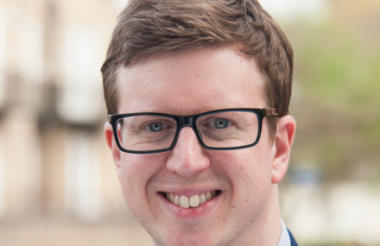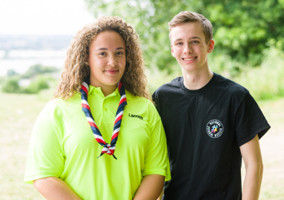Scouting is one of the big success stories of the charity sector. In the UK, the movement has grown every year for the past 13.
Furthermore, since its previous strategy, Scouting for All, began in 2013, the charity has increased the number of girls involved in the movement as well as setting up over 800 new units in areas of deprivation.
Matt Hyde, chief executive of the Scouts, describes the progress made over the past four years as “hugely successful”. The challenge, says Hyde, is in maintaining that momentum through the next five-year plan - Skills for Life.
There is more to do - there is still a deficit between the number of young people who want to join the Scouts and the number of places available. With a waiting list of 50,000, attracting more volunteers is a must if the charity wants to expand.
Reach more people
But it is also necessary for the charity to refresh the programme for young people. The first step is helping 14 to 18 year olds to focus on building practical, employability and character skills.
Young people and volunteering are at the heart of everything the Scouts does, so it’s no surprise that the charity is aiming to offer scouting to an extra 50,000 young people, recruit an additional 10,000 volunteers and launch 500 new units in areas of deprivation.
But a key part of this recruitment drive is about reaching out to involve people from a more diverse range of backgrounds.
“We know what a difference scouting makes,” says Hyde. Indeed, various studies have demonstrated the long-term impact of being involved in scouting such being more likely to demonstrate leadership skills and work well in teams, and being less likely to suffer from a mood disorder or anxiety later in life. The benefits have been shown to be greater for those from more deprived backgrounds.
The focus on employability skills is an “absolutely critical” part of the new strategy.
“We are preparing young people for jobs that haven’t been invented yet,” says Hyde.
“Social skills and creativity become more critical in a world of increased automation, because it’s difficult to automate those skills,” he explains.
Attract more volunteers
“Our success is all about how many volunteers we have,” says Hyde. At the moment there are 160,000 adults involved as volunteers, which is the highest number of volunteers the charity has had, but Hyde says more are needed.
He wants to make Scouts a deliberate “volunteering choice” for more adults by making it easier to get involved and by offering better support once they are.
The Scouts also wants to attract a more diverse range of volunteers. To do this, the charity plans to to improve the volunteer experience and make it easier for people to volunteer.
When Hyde joined the Scouts as chief executive in 2013 he also became a volunteer and has been running a Beavers group.
“It’s shown me that by refreshing some of our systems to make them more useful and helpful to frontline volunteers we’re more likely to get people from different backgrounds, particularly those with no experience of volunteering.”
Challenge outdated perceptions
It has been 17 years since the Scouts last changed its branding, which was developed in a “pre-digital age”.
Hyde says the latest rebrand was prompted by “some outdated perceptions”, with the intention to “articulate the benefit of scouting” and “attract and appeal to new audiences”.
This is particularly important when it comes to volunteering, as testing found that the new branding made people from BAME backgrounds more likely to sign up as a volunteer.
‘We’re not beholden to the state’
Independence from government is a key feature of scouting.
“There is an enduring power of civil society organisations like the Scouts,” Hyde says, and it’s important “we’re not beholden to any government or state agenda”.
But he says there are ways the government can support charities to do more.
“The state can put wind in the sails,” he says.
Hyde says that “targeted investment” from government can “help us to go further and quicker” in a way that is ultimately “good value to the taxpayer”.
The Scouts received government funding to help it to expand into areas of deprivation, using the money to pay for things like refurbishment and new equipment.
There are other ways the government can support the sector too though, for example “making it easier for people to volunteer by having time off work”.
To that end Hyde would like to see the government revisit a commitment in the Conservative Party’s 2015 election manifesto to give people three days off work per year to volunteer.
“Those are the sorts of things that make it easier for people to give their time and make scouting happen,” he says.
‘Putting the young person at the centre’
Hyde also says that the Scouts wants to continue to work collaboratively with other bodies in the sector to make the experience for young people as “seamless as possible”, and not force young people to choose between different programmes.
Last year the Scouts announced a partnership to work closely with the National Citizen Service programme. Scouts will deliver aspects of the programme and also recruit NCS graduates as volunteers.
“It’s very early days,” says Hyde, but he believes it could ultimately become a “virtuous circle”.
This work builds on what the Scouts has been doing with the Duke of Edinburgh scheme for a number of years - the charity is actually one of the largest deliverers of the scheme outside of the school system.
“We’re putting the young person at the centre of our thinking here,” he says. “For those of you who want to, you don’t have to make a choice between different organisations.”
|
Related articles












